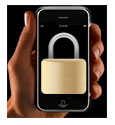
Heartland CEO Says Data Breach Was ‘Devastating’
From Computerworld (Jaikumar Vijayan)
Heartland Payment Systems chief executive Robert Carr remembers what it felt like when he first heard about the massive data breach at his company earlier this year.
“I wanted to throw up. It was devastating,” says Carr, recalling how he felt upon realizing that one of his worst fears had come true. “People had asked me for years ‘what keeps you awake at night’ and I would keep telling them it was the fear of a data breach,” he said. Read the full story [computerworld.com]













